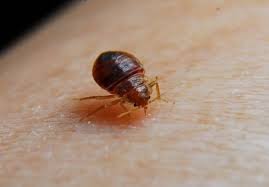The Impact of Bed Bugs on Staten Island’s Hospitality Industry
Bed bugs, those tiny, parasitic insects that feed on human blood, are not just a nuisance in homes—they pose a serious threat to the hospitality industry, especially in areas like Staten Island. Hotels, motels, hostels, and even Airbnb rentals are at risk of bed bug infestations, and when they occur, the consequences can be severe. In this blog, we’ll explore the impact of bed bugs on Staten Island’s hospitality industry, highlighting the challenges faced by businesses, the repercussions for guests, and how establishments can combat this growing problem.
1. Understanding Bed Bugs in the Hospitality Industry
What Are Bed Bugs?
Bed bugs are small, wingless insects that are reddish-brown in color and typically measure about 4 to 5 millimeters in length. They are nocturnal and feed on the blood of humans and animals, which is why they are most active at night, often targeting sleeping individuals.
Why Are Bed Bugs a Problem for Hospitality?
The hospitality industry thrives on cleanliness, comfort, and customer satisfaction. Bed bugs directly threaten all three. Infestations can occur even in the cleanest, most well-maintained hotels, as these pests are skilled hitchhikers, easily traveling via luggage, clothing, or secondhand furniture. Once they infiltrate an establishment, they can spread rapidly from room to room.
2. The Financial Impact on Staten Island’s Hotels
Loss of Revenue
The financial implications of a bed bug infestation can be staggering for hotels and other accommodations. When guests discover bed bugs, they are likely to demand refunds or leave negative reviews online, which can lead to a decrease in bookings. On top of that, the cost of treating an infestation can be substantial. Bed bug treatments often involve:
- Hiring pest control professionals
- Temporarily closing down affected rooms or entire sections of the hotel
- Replacing infested mattresses, linens, and furniture
In some cases, repeated treatments may be necessary, increasing the financial burden.
Legal Liabilities
In addition to the direct financial losses, bed bugs can also lead to legal troubles. Guests who suffer from bed bug bites or infestations in their homes after staying in a hotel may take legal action against the establishment. Hotels may be sued for negligence, which can result in hefty fines, compensation payouts, and damage to the hotel’s reputation.
3. Reputation Damage and Online Reviews
The Power of Online Reviews
The internet has transformed the way people choose where to stay. Websites like TripAdvisor, Yelp, and Google Reviews allow guests to share their experiences with the world. A single bed bug complaint can go viral, tarnishing the reputation of a hotel or rental property. Negative reviews about bed bugs can deter potential guests, who may choose to stay elsewhere, even if the infestation has been addressed.
Word-of-Mouth Damage
In the age of social media, word-of-mouth spreads quickly. Guests who encounter bed bugs are likely to share their experiences with friends, family, and followers. The stigma associated with bed bugs can have a lasting effect on the perception of a hotel or rental property, leading to long-term reputation damage that’s difficult to recover from.
4. Guest Health and Well-Being
Physical Reactions
While bed bugs are not known to transmit diseases, their bites can cause a range of physical reactions, from mild irritation to severe allergic reactions. Guests who experience bed bug bites may suffer from:
- Red, itchy welts
- Allergic reactions, including swelling and hives
- Psychological distress, including anxiety and insomnia
These physical and emotional reactions can significantly diminish a guest’s experience and may even require medical attention.
Emotional and Psychological Effects
For many guests, the mere presence of bed bugs can cause extreme discomfort and anxiety. The idea of being bitten while sleeping, coupled with the fear of taking bed bugs home in their luggage, can ruin a vacation or business trip. The emotional toll of a bed bug encounter can have long-lasting effects, even after leaving the hotel.
5. Preventative Measures in Staten Island Hotels
Regular Inspections
The most effective way to combat bed bugs is through prevention. Regular inspections by trained staff or professional pest control experts can help catch infestations early before they spread throughout the property. Hotels should:
- Inspect mattresses, box springs, and bed frames for signs of bed bugs
- Check behind headboards, baseboards, and furniture
- Use bed bug monitoring devices in rooms to detect early infestations
Staff Training
Educating staff on how to identify bed bugs and their signs is crucial for preventing infestations from spreading. Housekeeping staff, in particular, should be trained to look for the following:
- Rust-colored spots on bedding (bed bug excrement)
- Shed skins or small, translucent shells
- Live bed bugs or eggs, often found in mattress seams or cracks in furniture
By equipping staff with the knowledge to identify bed bugs, hotels can respond to infestations more quickly and efficiently.
6. Pest Control Solutions
Professional Extermination
Once an infestation is confirmed, the most effective course of action is to hire a professional pest control company that specializes in bed bugs. These experts can use a combination of heat treatments, chemical sprays, and other methods to eliminate the pests.
Heat Treatments
Heat treatments involve raising the temperature in affected rooms to a level that is lethal to bed bugs. This method is highly effective because it kills bed bugs at all stages of their life cycle, including eggs. However, it may require the room to be vacated for several hours, which can disrupt business operations.
Chemical Treatments
In some cases, chemical treatments may be necessary to eliminate a bed bug infestation. Hotels should work with licensed pest control professionals to ensure that any chemicals used are safe for guests and staff.
7. Guest Communication and Transparency
Honesty and Openness
If a bed bug infestation occurs, honesty is the best policy. Guests should be informed of the situation and the steps being taken to address it. Offering to move them to a different room, providing a refund, or assisting with cleaning their belongings can help mitigate the negative impact.
Long-Term Solutions
To reassure guests, hotels can provide information on the measures they are taking to prevent future infestations, such as regular pest control treatments, bed bug monitoring, and staff training. Transparency about these efforts can help restore guest confidence in the property.
Conclusion
Bed bugs pose a significant threat to Staten Island’s hospitality industry, affecting everything from a hotel’s bottom line to its reputation and guest satisfaction. While the financial costs of treating infestations can be high, the damage to a hotel’s reputation can be even more detrimental. By investing in preventative measures, such as regular inspections, staff training, and professional pest control services, hotels can protect themselves from the negative impact of bed bugs.






